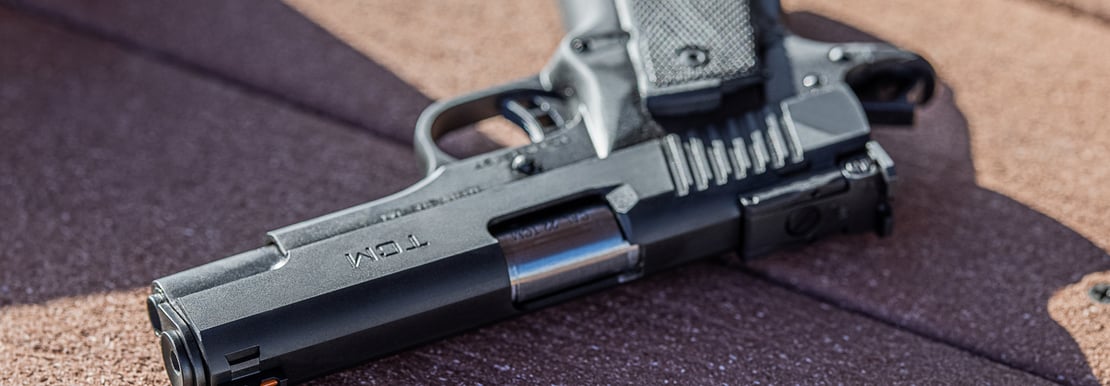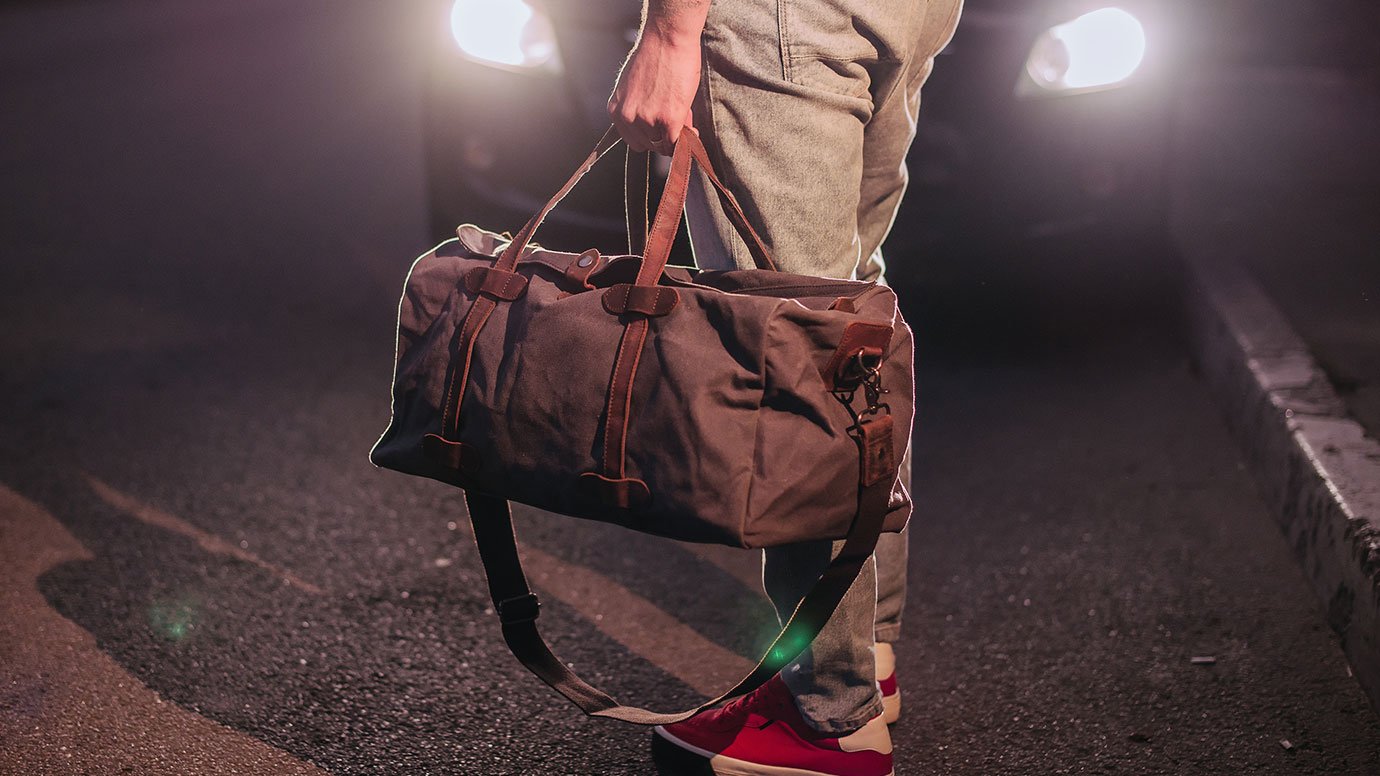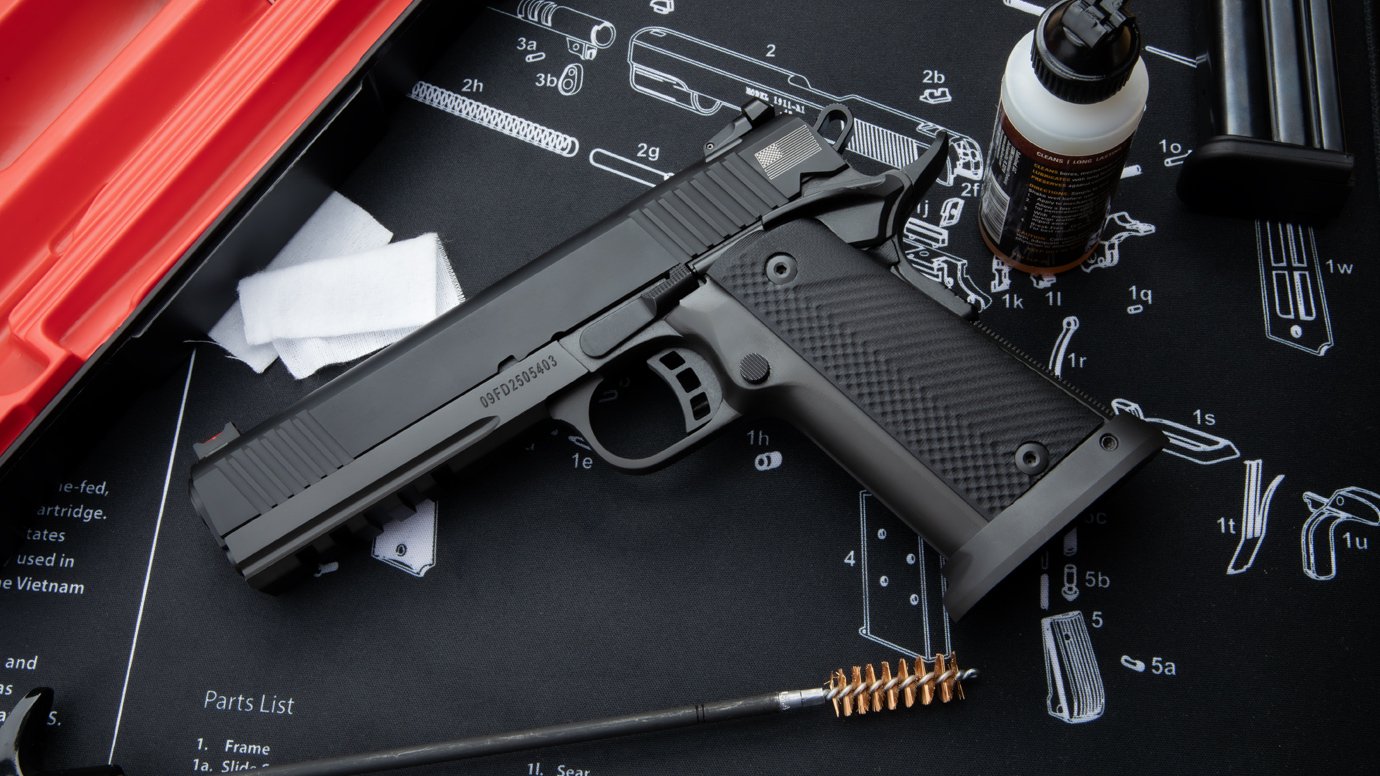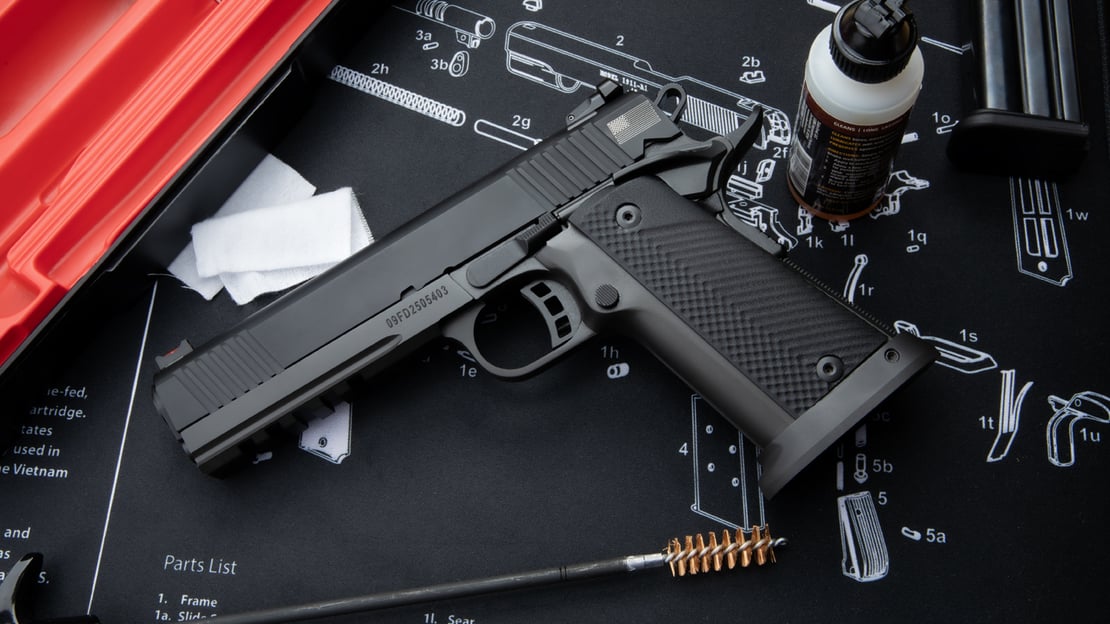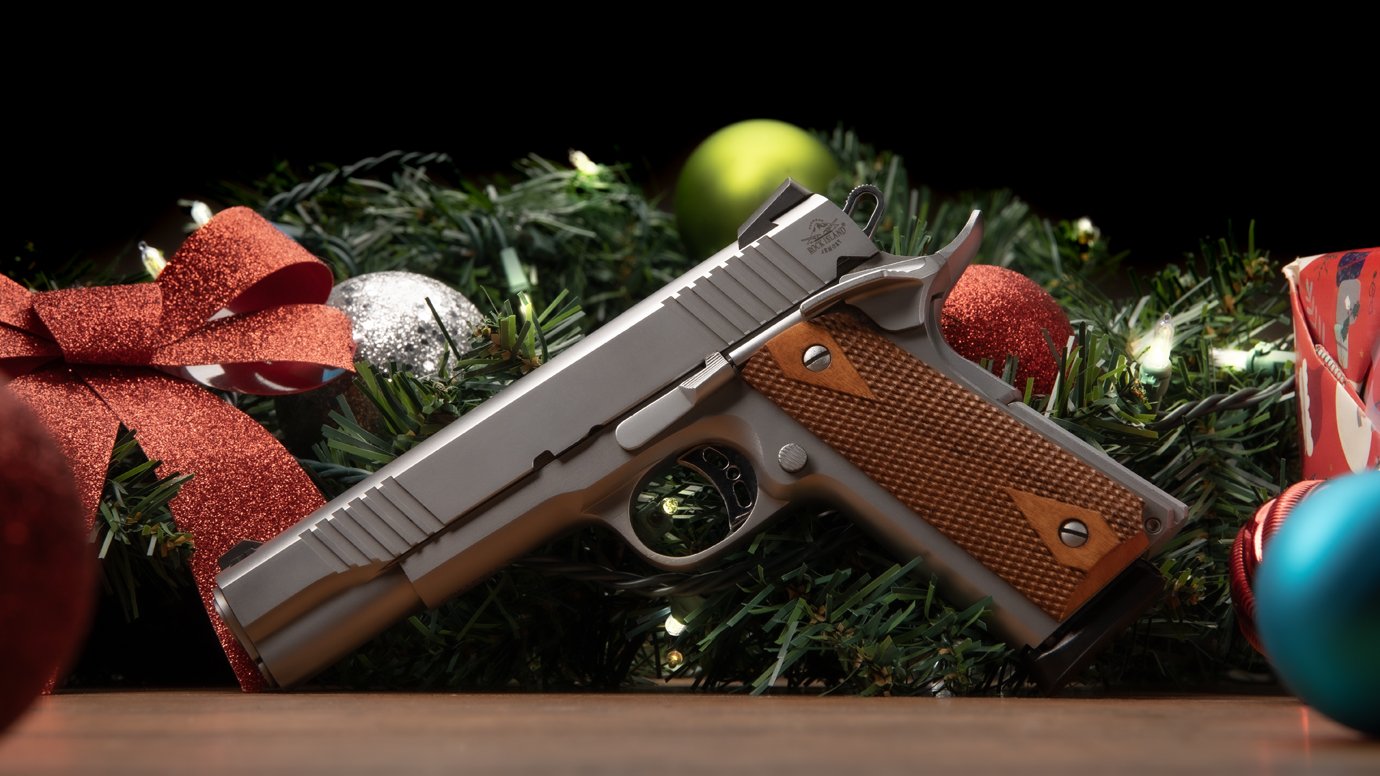Get The Best Firearm For Self Defense
Posted by Team Armscor on Jun 26, 2023 9 Minute Read
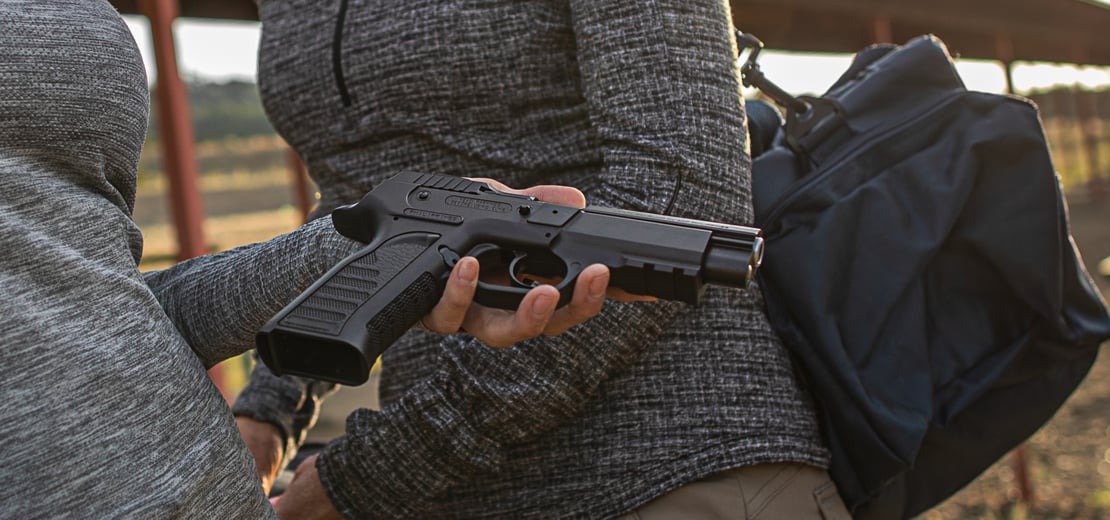
A firearm’s number one purpose is to defend, whether that be out in the wild or in the comfort of your own home. When it comes to home defense, however, not every firearm is designed for the job. When you may have to use lethal force on an intruder, you need to ask yourself, “What firearm and caliber should I consider in my home?
Luckily, there are as many variables as there are firearms to consider, and we’re going to break it down.
// RIFLES
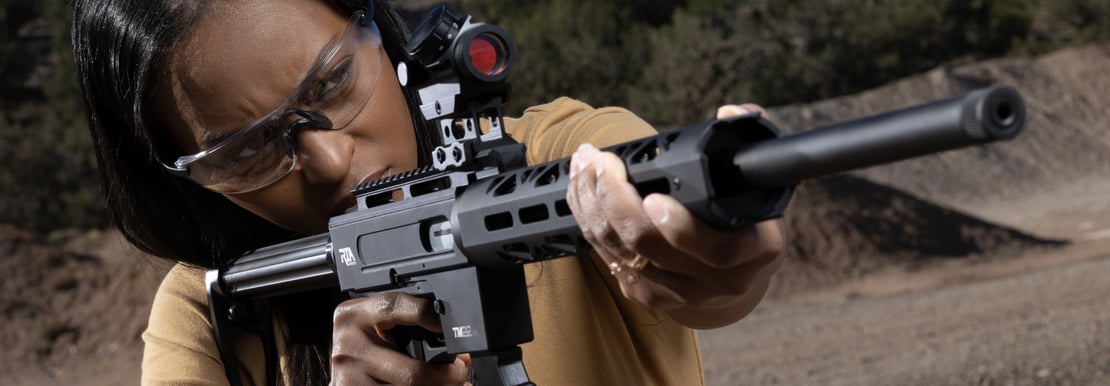
To put it bluntly, rifles are not ideal for home defense. If you do currently or decide to use one, you’ll certainly have power on your side, but it comes with plenty of drawbacks.
For starters, they’re not particularly easy to store away or keep out of reach of kids, with easy access. It’s important to have your firearm safely locked away when not in use, and, unless you plan like to invest in a tall, costly gun safe, a lengthy rifle will make that difficult (even SBRs (Short Barrel Rifles) or AR Pistols have some length to them). Not to mention, it takes two hands to operate. In the instance that you may need to direct a loved one to a safe location, one of your hands might be busy with them making the rifle hard to maneuver. The bulkiness of a rifle can slow you down in moments when you need to act quickly.
When fired, a rifle, especially in enclosed spaces, is very loud and could cause hearing damage. That’s not to say a handgun is any easier on the ears, but a rifle's higher pressure wave and fuller sound spectrum leave a much greater impact on your eardrums. The primary issue is power; all rifle calibers will over-penetrate and risk serious damage to your home, family, or neighbors. Lastly, reliable rifles are often a more expensive option than other choices for home defense.
// Shotguns
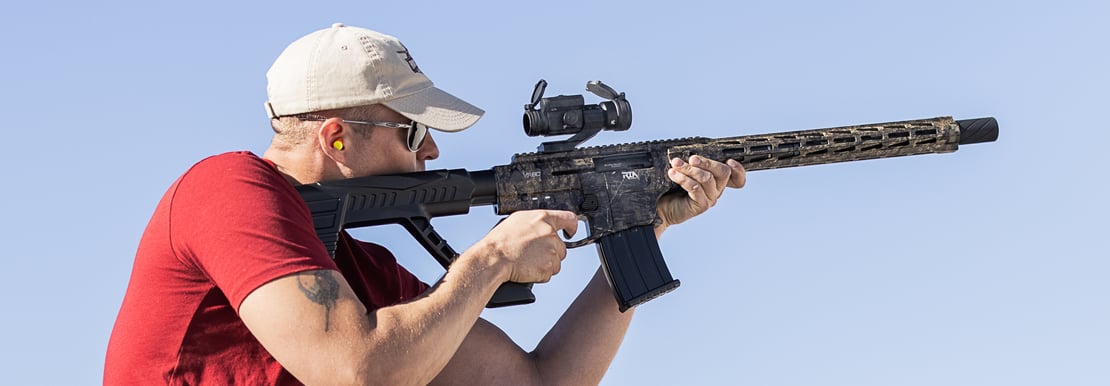
Whether it’s single shot, pump-action or semi-automatic, shotguns are a common home defense recommendation, albeit they aren’t just “point and shoot” as most audiences are told. When it comes to home defense, shotguns have far more advantages than disadvantages. They’re easier to handle and carry less bulk than a rifle, but they still come with a few things you should consider if this is your firearm of choice.
One advantage of using a shotgun is its spread. When you pull the trigger on a 12 GA, you’re sending 8 or 9 .33 caliber pellets down range simultaneously. Shotguns also prove very versatile; ammo is easily exchanged meaning you could use the same shotgun for hunting as home defense.
Now, while it’s nice to have a slightly larger spread, AKA a broader net to hit your target, that can result in more unintentional colleterial damage. You’d hate to hit your target and have a few beads spread too far and hit the family pet. Near misses or complete misses will also do extensive damage. Like a rifle, shotguns also tend to be bulkier, which can result in slower movement and awkward handling in certain circumstances
A common misconception is that shotguns won’t over-penetrate, which isn’t true as drywall is nearly tissue paper to shotguns (unless using the birdshot).
// pistols
When it comes to home defense, a pistol is your most well-rounded option. Thanks to their convenient size and versatility, pistols have quickly grown to be the go-to choice for home defense. While accuracy may vary, pistols offer more in terms of caliber variety and maneuverability versus a rifle or shotgun.
The biggest factor to consider when choosing a proper handgun is your ammo type. Most rounds will have issues with over-penetration through drywall, except for the .22. That’s not to say ammo such as 9mm, .40 and .45 ACP are not solid choices, just don’t be surprised if you end up hitting objects behind your target.
Positioning in any home defense-related shooting is critical as nearly all calibers will penetrate drywall. For example, it’s natural that you might end up in a defensive position where the attackers are in front of you and your family is behind you. Even if they’re in another room, your family is in the line of fire. To minimize this risk, it’s wise to distance yourself from your family. While it’s risky to leave them alone, it’s important to weigh that risk against the risk of drawing hostile fire in the direction of your family.
At the end of the day, pistols grant you more opportunities to hit your target, less chance for those shots to do unnecessary damage and allow you more flexibility when seeking cover or lining up your shot.
// Specialty self-defense rounds
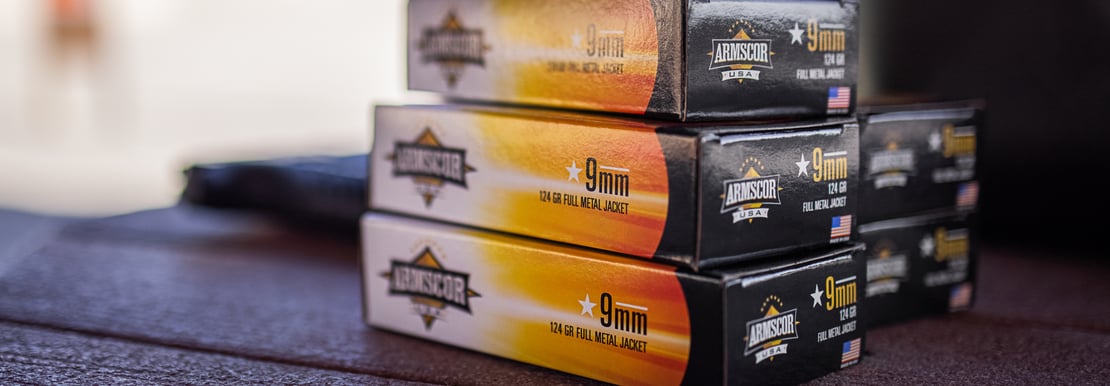
Ammunition, in any capacity, is very powerful. Luckily, there are certain rounds designed with home defense in mind. Most do not expand as promised when moving through softer materials, such as drywall. These rounds have great stopping power, but misses will go through a house. Here are some of our recommendations for the best home and self-defense rounds:
- .45 ACP – The .45 ACP has shallow penetration than most other defense ammunition. Its slow-moving, sizable bullets help prevent pass-through shots, which is important if you need to shoot an intruder near bystanders.
- .357 Magnum – The .357 Mag has more velocity and delivers more energy both at the muzzle and on downrange targets than a standard 9mm. The magnum bullet is beefier, with a large diameter hitting with more force that can lead to greater tissue damage, blood loss and pain, which is necessary for quickly eliminating a target.
- 9mm – Currently, the 9mm is the most popular cartridge for both law enforcement and civilian concealed carry. 9mm ammo shoots fast, hits hard and can expand up to .74 inches.
// FEEL RIGHT AT HOME
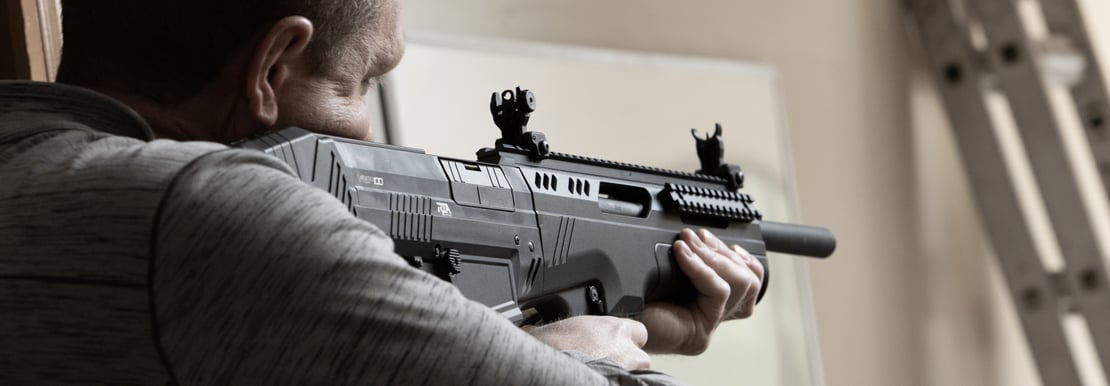
It’s important to feel safe at home, and that includes having the proper protection for when danger comes knocking. As far as finding that protection, there’s no shortage of options – even down to the ammo you choose. No firearm is completely void of over-penetrating. Shotguns with birdshot or low-caliber handguns offer the best chance to avoid over-penetration. This means it’s just as important to know the layout of your house and what lies behind your target when taking your shot.
Remember to discuss and practice home defense with your family to make sure you and they are prepared should the worst happen.

